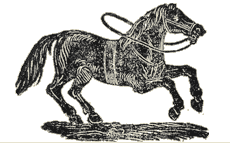Event title:
Musical trial for forthcoming Czech beseda to be held on 31/1/60
Venue: Žofín Island (Žofín Hall)
Event type: Rehearsals and music trials
Date: 22/01/1860 4pm
Season: Carnival
Programme including:
- ensemble of the Infantry Regiment of Count Nugent: participating ensemble, orch
- HOPF, ?: director of ensemble, conductor
Commentary:
Advance news of the staging of the annual Czech Beseda appeared in Prager Morgenpost 10/1/1860 in a report announcing ‘We bring to the dance-loving world of Prague the surely joyous news that the “Beseda” [Beseda being rendered in a Latin and not a Fraktur typeface, signifying that the event was of Czech and not wholly German character], which from time immemorial has been a beautiful and popular part of the Carnival festivities, will this year take place on 31st of this month at the Žofín Island. The musical rehearsal to this takes place on Sunday 22st of this month and promises to be a really pleasant evening with all the pieces specially composed for the Beseda. The orchestra will be the proficient musical ensemble of the Infantry Regiment of Count Nugent, personally directed by Kapellmeister Mr Hopf.’
Further news of the trial itself was published in a brief report in Prager Morgenpost 22/1/1860. This related the venue and time of the event (and also the date of the Beseda itself), that works composed especially for the Beseda would be performed, and that the participating ensemble was the Infantry Regiment of Count Nugent directed by its Kapellmeister, Mr Hopf. The trial was reported too by Bohemia 22/1/1860, giving its time and venue as well as the date of the forthcoming Beseda itself; similar news appeared in Der Tagesbote 10/1/1860 and Prager Zeitung 22/1/1860.
According to the Dalibor 1/2/1860 report the trial was ‘very numerously attended’. The report, the only periodical source to identify any of the works performed, listed the compositions that were best liked. Procházka’s quadrille was described in detail, the correspondent noting that the piece began with a quotation of J.Th. Krov’s song Těšme se blahou nadějí (Blissfully let us hope), after which followed sections including Ukranian, Serbian and Polish folksongs, and ended with the contrapuntal combination of the Czech song Horo, horo, vysoká jsi (Mountain, mountain, you are high) with the Russian national anthem.
The works listed in the database record are given in the order they were mentioned by the Dalibor 1/2/1860 report.
Summary of sources:
Tagesbote aus Böhmen (10/01/1860)Prager Morgenpost (10/01/1860)
Dalibor, hudební časopis s měsíční notovou přílohou (20/01/1860)
Bohemia, ein Unterhaltungsblatt (22/01/1860)
Bohemia, ein Unterhaltungsblatt (22/01/1860)
Prager Morgenpost (22/01/1860)
Prager Zeitung (22/01/1860)
Dalibor, hudební časopis s měsíční notovou přílohou (01/02/1860)



